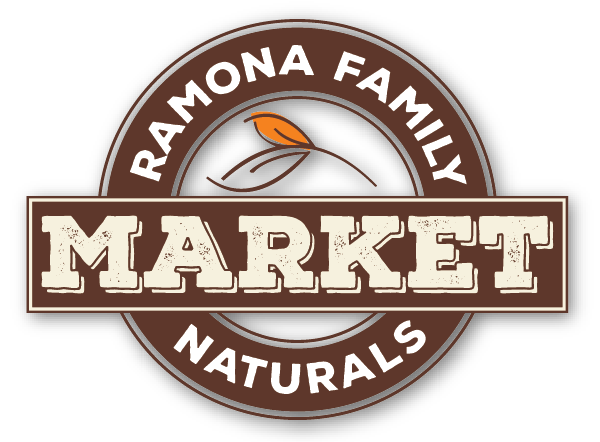Enjoy the Summer Fun!
It’s summer, and the sun is out! Here are some natural tips on how to enjoy it. UV light from the sun can harm your skin. Commercial sunscreens, though, are a frequent cause of skin toxicity and contact allergy. A recent study points to a plethora of natural skin products that are safer, better tolerated, cheaper and effective (J Ayurveda Integr Med 2022;13(1):100500). The surprising list includes aloe vera, ginseng, green tea, tea tree oil, rosemary, soy, garlic, ginkgo, bilberry, licorice, lavender, lemon balm and rosemary. Many of these herbs are rich in flavonoids and protect against UV rays by being antioxidant and anti-inflammatory.
Enjoy the Sun
Remember to enjoy the sun. People who have active sun exposure habits (sun tan) live 0.6-2.1 years longer than people who avoid sun exposure. Avoiding the sun increases your risk of cardiovascular disease by 60% (it goes up by 230% compared to people who get the most sun exposure). People who avoid the sun also have 70-110% greater chance of dying from diseases other than cardiovascular disease or cancer (J Intern Med 2016;doi: 10.1111/ joim.12496). Here’s some hints on how to enjoy it safely.
The Most Delicious Suncsreen? Dark Chocolate!
Dark chocolate is rich in antioxidant flavonoids and protects you from the harmful effects of the sun. Eating 100g a day of dark chocolate significantly lowers your skin’s sensitivity to the sun’s UV rays and significantly improves skin density and thickness, skin roughness and scaling and skin hydration (J Nutr 2006;136:1565-9; Lett Appl Microbiol 2009;49:354-60). Dark chocolate can even reverse the damage that’s already been done. When women with wrinkles caused by sun exposure drank a high-flavanol cocoa drink or a placebo drink, skin roughness improved significantly more in the cocoa group: an 8.7% improvement versus only 1.3% in the placebo group. Skin elasticity also improved significantly more in the chocolate group (J Nutr 2016;146(1):46-50).
Tea Time for Your Skin
Green tea is also rich in flavonoids. So, it may not come as a surprise that green tea works too. 540mg of green tea catechins and 50mg of vitamin C a day for 12 weeks protects against UV radiation (Br J Nutr 2013). Also look for creams with green tea in them. Topical green tea extract containing 10% polyphenols significantly reduces burning caused by exposure to UV rays (J Am Acad Dermatol 2001;44:425-32).
The Pomegranate Protection Plan
Pomegranate is another super source of flavonoids. Pomegranate protects your skin from the sun whether you drink it as a juice or take it as a supplement. 74 people were given either a placebo, 1000mg of pomegranate extract or 8 ounces of pomegranate juice. Each person was exposed to ultraviolet (UVB) radiation. But the ones who drank the pomegranate juice or took the pomegranate supplement didn’t sunburn until they had been exposed to significantly more UV radiation (Sci Rep October 10, 2019;9(1):14528).
Other Flavonoids
The flavonoids in dark chocolate, green tea and pomegranate are behind their sun protection. Other flavonoids help too. Pine bark extract significantly increases the time you can stay in the sun without burning (Free Rad Biol Med 2001;30:154- 60).
Antioxidants
Antioxidants screen you from sunburn (Free Radic Biol Med 1998;25:848-73). Selenium protects against sunburn. People with the lowest levels of selenium have 5.8 times the incidence of skin cancer as people with the highest levels (Nutrition & Cancer 1984). Natural betacarotene gives you a small but significant increase in the amount of sun you can enjoy before you burn (J Invest Dermatol 1972; Proc Soc Exp Biol Med 2000;223:170-4). Beta carotene combined with the carotenes lutein and lycopene also protect against UV rays (J Nutr 2001;131:1449-51), and lycopene combined with other carotenes has been shown to decrease reddening from exposure to UV light (Int J Vitam Nutr Res 2005). Recently, 20mg of either lycopene or lutein was shown in double-blind research to offer significant protection from UV radiation damage (Br J Dermatol 2017;176(5):1231-1240). 2-3g of vitamin C and 1,000-2,000IU of vitamin E have been shown in double-blind research to significantly protect against UV rays (Free Radic Biol Med 1988;25:1006- 12; Arch Dermatol 1994;130:1257- 61; J Am Acad Dermatol 1998;38:45-8). An antioxidant combination of beta carotene, lycopene, vitamin E and selenium has also been shown to significantly improve defence against UV damage (Photodermatol Photoimmunol Photomed 2003;19:182-9).
Silica: Reversing the Damage
Like chocolate, silica can reverse damage already done by the sun. A double-blind study of women with skin damaged by the sun found that 10mg of silica improved skin elasticity and smoothness, improving elasticity by 55% and reducing fine lines by 30% (Arch Dermatol Res 2005;297:147-53).
Tropical Topicals
As we have already seen, taking selenium protects you from the sun. Applying it to your skin works too. In a small study of 8 women, applying a topical L-selenomethionine lotion for 2 weeks protected their skin from UV damage (Photodermatol Photoimmunol Photomed 1992 Apr;9(2):52-7). It sounds strange, but double-blind research shows that topical melatonin works really well too (Arch Dermatol Res 1996 Aug;288(9):522- 6; Dermatology 1997;195(3):248-52). The best melatonin suntan lotion may include vitamins C and E. A double-blind study applied vitamin C, vitamin E or melatonin 30 minutes before exposure. They all provided some protection, but the protection was enhanced when they were applied in combination. The best combination was a lotion containing 2% vitamin E, 5% vitamin C and 1-2.5% melatonin (Br J Dermatol 1998 Aug;139(2):332-9).
And If You Do Burn
More great topical protection is provided by the great burn soother aloe vera. Aloe is great for soothing burns (J Med Assoc Thai 1995;78:403-9) and for protecting against them. St. John’s wort oil and calendula are also great burn healers.
More Help
Essential fatty acids also help increase your defences against the sun. And in vitro (Exp Mol Med 2005;37:186-92) and human (J Cosmet Dermatol 2011;10:260- 5) research also suggests the possibility that curcumin may be an effective sunscreen for protection against photo inflammation.

